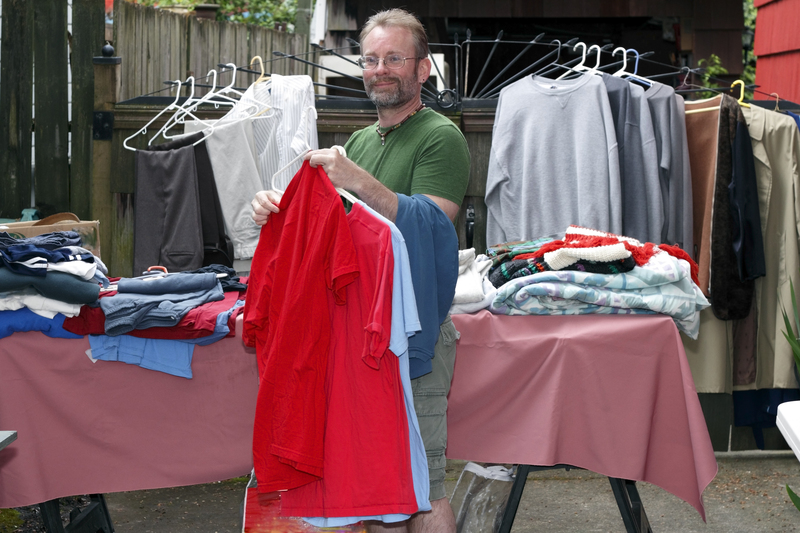Plastic-Free Living with Bamboo
In today's environmentally-conscious world, the movement towards plastic-free living has gained significant momentum. One of the most promising alternatives to plastic is bamboo - a versatile, sustainable resource that is transforming industries and lifestyles. From kitchenware to personal care items, bamboo is paving the way for a greener future.
The Environmental Impact of Plastic
Plastic pollution is one of the most pressing environmental issues of our time. Over 8 million tons of plastic waste end up in the oceans annually, harming marine life and ecosystem health. Plastics can take hundreds to thousands of years to decompose, and during this period, they break down into harmful microplastics that contaminate food chains.

Introducing Bamboo: A Green Solution
Bamboo, a fast-growing grass, offers a compelling solution to plastic pollution. Not only is bamboo highly renewable, but it also possesses remarkable strength and versatility that makes it suitable for a wide range of applications. The plant can grow up to three feet in a single day and reaches maturity within three to five years, making it an incredibly sustainable resource.
The Versatility of Bamboo Products
Bamboo's versatility extends across numerous industries. Its durability and water-resistant properties make it an ideal material for a variety of products. Below are some common bamboo-based alternatives to everyday plastic items:
- Bamboo Toothbrushes: Unlike plastic toothbrushes, bamboo toothbrushes are biodegradable and can be composted after use.
- Bamboo Cutlery: Lightweight and reusable, bamboo cutlery is perfect for picnics, travel, and everyday use.
- Bamboo Fabric: Soft and breathable, bamboo fabric is used in clothing, towels, and bed linens, providing a sustainable alternative to synthetic fibers.
- Bamboo Straws: An eco-friendly replacement for single-use plastic straws, bamboo straws are durable and reusable.
Health Benefits of Using Bamboo Products
Beyond environmental advantages, bamboo products also offer health benefits. Bamboo contains a natural bio-agent called "bamboo kun" which helps it resist bacteria and pests. Hence, bamboo-made kitchenware and personal care products like toothbrushes are naturally antimicrobial, reducing the risk of bacterial contamination.
Challenges and Considerations
While bamboo is an excellent alternative to plastic, it is not without challenges. The production and transportation of bamboo products involve carbon emissions and energy use. Therefore, it's essential to consider the overall carbon footprint of bamboo items and strive for local sourcing where possible to minimize environmental impact.
How to Incorporate Bamboo into Your Daily Life
Adopting bamboo-based products into your daily life can be a seamless process. Here are a few tips on how to incorporate bamboo while reducing plastic use:
- Start Small: Begin by replacing small plastic items, such as toothbrushes or straws, with their bamboo counterparts.
- Reusability: Opt for reusable bamboo products rather than single-use items to maximize the environmental benefits.
- Local Purchases: Whenever possible, buy from local producers to reduce the carbon footprint associated with transportation.
- Education: Inform friends and family about the benefits of bamboo and sustainable living.
Case Studies: Bamboo in Action
Several companies and communities worldwide have already successfully integrated bamboo into their products and practices. For example, companies like Brush with Bamboo and Bamboo Studio offer a wide range of eco-friendly products that exemplify the versatility of bamboo. In communities across Asia and Africa, bamboo is a traditional material for building homes, furniture, and even musical instruments.

Future Prospects of Bamboo
The future looks promising for bamboo as an alternative to plastic. As technology advances, new uses and methods for processing bamboo are likely to emerge, enhancing its functionality and reducing production costs. Governments and environmental organizations are increasingly recognizing bamboo's potential and are advocating for its wider adoption.
Conclusion
Plastic-free living need not be daunting when you have a resource as versatile and sustainable as bamboo. By integrating bamboo products into our daily lives, we can significantly reduce plastic waste and its detrimental environmental effects. Whether it's a toothbrush or a piece of furniture, every bamboo item helps us move one step closer to a cleaner, greener planet. Embrace the bamboo revolution and contribute positively to our environment today.
